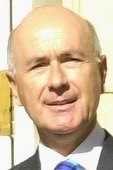| |||||||||||||||||||||||||||||||||||||||||||||||||||||||||||||||||||||||||||||||||||||||||||||||||||||
All 350 seats in the Congress of Deputies and 208 (of 264) seats in the Senate 176 seats needed for a majority in the Congress of Deputies | |||||||||||||||||||||||||||||||||||||||||||||||||||||||||||||||||||||||||||||||||||||||||||||||||||||
|---|---|---|---|---|---|---|---|---|---|---|---|---|---|---|---|---|---|---|---|---|---|---|---|---|---|---|---|---|---|---|---|---|---|---|---|---|---|---|---|---|---|---|---|---|---|---|---|---|---|---|---|---|---|---|---|---|---|---|---|---|---|---|---|---|---|---|---|---|---|---|---|---|---|---|---|---|---|---|---|---|---|---|---|---|---|---|---|---|---|---|---|---|---|---|---|---|---|---|---|---|---|
| Opinion polls | |||||||||||||||||||||||||||||||||||||||||||||||||||||||||||||||||||||||||||||||||||||||||||||||||||||
| Registered | 35,073,179 | ||||||||||||||||||||||||||||||||||||||||||||||||||||||||||||||||||||||||||||||||||||||||||||||||||||
| Turnout | 25,900,439 (73.8%) | ||||||||||||||||||||||||||||||||||||||||||||||||||||||||||||||||||||||||||||||||||||||||||||||||||||
| |||||||||||||||||||||||||||||||||||||||||||||||||||||||||||||||||||||||||||||||||||||||||||||||||||||
| |||||||||||||||||||||||||||||||||||||||||||||||||||||||||||||||||||||||||||||||||||||||||||||||||||||
The 2008 Spanish general election was held on Sunday, 9 March 2008, to elect the 9th Cortes Generales of the Kingdom of Spain. All 350 seats in the Congress of Deputies were up for election, as well as 208 of 264 seats in the Senate.
After four years of growing bipolarisation of Spanish politics, the election saw a record result for both ruling Spanish Socialist Workers' Party (PSOE) and opposition People's Party (PP), together obtaining more than 83% of the vote share—over 21 million votes—and 92% of the Congress seats. The PSOE under José Luis Rodríguez Zapatero benefitted from tactical voting against the PP and emerged as the most-voted party just 7 seats short of an overall majority. On the other hand, Mariano Rajoy's PP saw an increase in its vote share and seat count but remained unable to overtake the Socialists.
United Left (IU) had its worst general election performance ever with less than 4% and 2 seats. Regional nationalist parties Convergence and Union (CiU), Republican Left of Catalonia (ERC), Basque Nationalist Party (PNV) or Aragonese Union (CHA) were also hurt by the massive tactical voting towards the PSOE, falling to historical lows of popular support. Union, Progress and Democracy (UPyD), with 1 seat and slightly more than 300,000 votes, became the first nationwide party aside from PSOE, PP and IU entering in parliament in over two decades.
Zapatero was sworn in as Prime Minister of Spain for a second term in office in April 2008, just as the Spanish economy began showing signs of fatigue and economic slowdown after a decade of growth.








